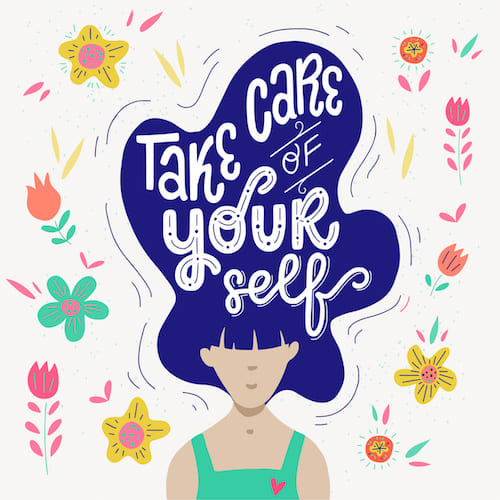November 30, 2018
By Annabel Arana

In 2014, after years of not speaking to one another, I received an unexpected phone call from my older sister. She disclosed that she was in a violent marriage and needed help. Snapping into action, I helped my sister get out of her abusive relationship. I had no idea then how much of a roller coaster ride I would embark on after that unforgettable phone call. Several months into helping my sister and her family, my younger brother was unexpectedly diagnosed with a serious medical condition. He was hospitalized for almost a year and a half.
Helping my siblings with their crises left me feeling overwhelmed and in constant flight or fight mode. There was no time to process, only time to act. Over time, I felt worn out and depleted. I wished someone had told me how to properly take care of myself during this personal ordeal.
When the roller coaster ride finally slowed down, I retreated in order to re-build my own mental health. This led me to seek mental health services to help process the family crises I had been through.
Having to assist a loved one through a crisis only underscores the importance of taking care of your own mental health. If you are a loved one who is trying to help a family member or have become a designated caregiver, there are certain things you can do to ensure that mental health in the family becomes a priority.
Set Boundaries
By being a designated caregiver, you may be comfortable giving of yourself to help your family member without taking a breather. And I understand that taking care of your own needs can be difficult because of the demands of the family. Setting boundaries does not mean that you are setting limitations in helping your family member; it is only asking that other members respect your boundaries and allow you to recharge. For example, perhaps you can share with your loved one that instead of helping all throughout the week, that you are available during certain hours on certain days. This will allow you structured time to focus on yourself.
Practice Self-Care
Taking care of a family member can feel draining, overwhelming and even frustrating. It is essential that you take some time to unwind. Don’t feel guilty for making self-care a priority. Tending to your emotional needs does not mean you are being needy. Honor and protect your mental health by reflecting on what needs tender love and care.
It may take additional time to define what you need to maintain your mental health. Does it mean carving out time in your schedule to create breathing room for yourself? Spending more time with friends? Going outside to take a walk? Letting your feelings out in a journal? Do what you feel is appropriate and within your means to help yourself recharge. After all, it is impossible to pour from an empty cup.
Establishing a personal check-up with yourself can help build perspective on how you need to recharge. It can also help you vocalize your needs to your family members.
In addition, it may be helpful to consult a therapist and share how your family member’s diagnosis has impacted you. A therapist can provide encouragement, which can help recharge your emotional batteries. Your mental health matters, too.
Build a Support Network
Asking for help from people outside of your immediate family can be intimidating and challenging. However, you should not feel alone in caring for your loved one. Ask other family members, friends and neighbors if they are available to help. If they are, ask how much they can/are willing to help. Give them some ideas of what would be helpful, like assisting you with basic errands such as bringing food over for dinner or just spending time visiting. You don’t need to handle everything on your own—there are people out there who will help you.
When my family crisis was over, I had the energy to resume my daily routine. I felt as though I was able to pursue my tasks with more momentum than before. My family and friends noticed how I was focusing on re-energize myself and continued to show their support. There will always be demands and responsibilities to attend to right away. But when you take care of yourself, you are also showing how important mental health is for everyone.
Annabel has been involved with NAMI at the HelpLine for nearly two years and is loving every moment of it. You can find her on LinkedIn or follow her on Instagram at @thecompassionatefruit.
We’re always accepting submissions to the NAMI Blog! We feature the latest research, stories of recovery, ways to end stigma and strategies for living well with mental illness. Most importantly: We feature your voices.
Check out our Submission Guidelines for more information.
Submit To The NAMI Blog
We’re always accepting submissions to the NAMI Blog! We feature the latest research, stories of recovery, ways to end stigma and strategies for living well with mental illness. Most importantly: We feature your voices.
LEARN MORE